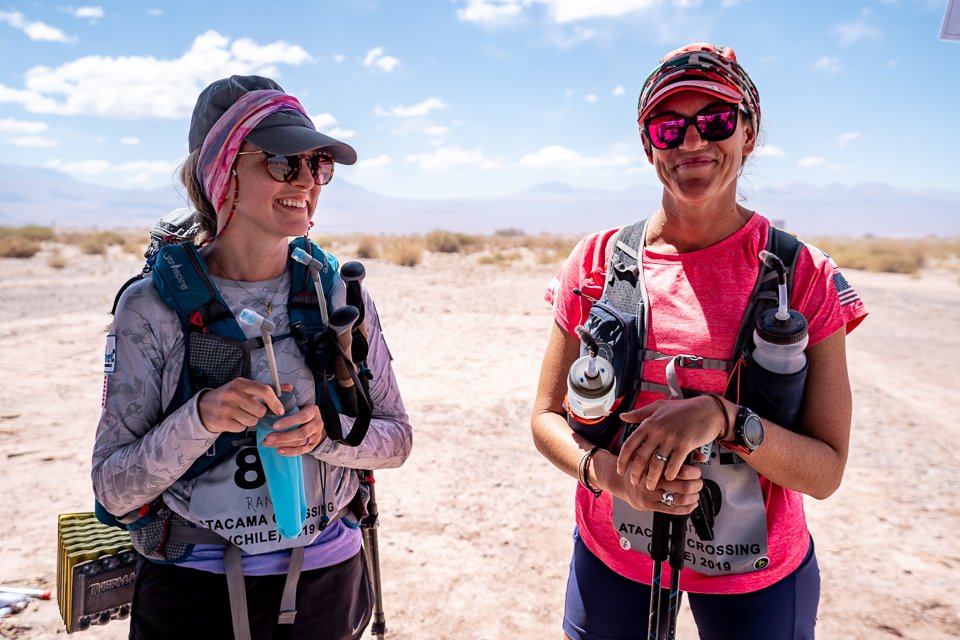10 top tips: How to start ultra running
So, you’d like to get into ultra running but not quite sure how to get started? How much training can you really get away with? As they really as bad for you as everyone keeps telling you? And can anyone do an ultramarathon?
If you are totally new to the ultra running space and you’re asking yourself this question.
“What is the difference between a marathon and a ultra-marathon?”
I’ve got you covered. You can read more about what the difference is between a marathon and a ultra marathon in my recent blog post here.
Read on to find out my top tips on how you can get started with ultra running today.
1. Decide on a distance
Ultramarathon race distances typically start at 50k and then jump up to some of the more classic distances of 50 miles, 100k and 100 miles. The world longest official ultramarathon is the Self-Transcendence 3100-mile race which takes place in New York from Sept and runs for 52 days.
If you already have a marathon or two under your belt, stepping up to the 50k marker might not seem like too much of a challenge. And if you don’t 50k is a perfectly good starting point to dip your toes into the world of ultra running.
Whilst I don’t believe you need to run 100-mile weeks to train for your first ultra, they do require a minimum level of commitment to get you by safely. The distance you choose might also be determined by your training history and the time you have available for training during the week around work and family commitments.
There are no written rules to say you need to have run a marathon before entering your first ultra marathon. In fact, many of the women I coach don’t, and we usually cover the distance or close to the distance during training.
2. Join a guided trail run
Not ready to take the plunge and enter an event just yet but want to explore new trails with others? There are so many barriers women face when it comes to how to start ultra running and I know for so many of your safety on the trails and running alone is a huge one.
Guided trail runs are a great way to take the pressure off from racing and join like-mined women in a social and supportive environment. Expect lots of stops for photos to admire the views.
She Runs Outdoors offer women only guided trail runs through Sussex and Surrey. The routes are planned, so you don’t have to. All the runs are social, inclusive, supportive, and suitable for all runners. Whether you’re on your own or coming with friends, you’ll be in good company.
3. Register for an event with generous cut off times (or none at all!)
The number of ultra-marathon races taking place in the last decade has skyrocket and it can be overwhelming to know where you should begin and what considerations you should make when choosing your first ultramarathon.⠀
I see you. You’re worried about putting yourself out there if there is chance you might not make the cut off times and DNF? Am I right? The good news is there are plenty of events out there now with really generous cut off times or none at all, so it’s important to take the time to do the research and choose your event wisely so you can avoid stressing out about your pace come race day.
If you’re a mid to back of the pack runner, it doesn’t mean your race result or value as a person is any less than the runner crossing the finish line first. Let me remind you that you still finished a freaking ultra!
4. Hire a personal running coach
I absolutely believe that you don’t have to be a professional runner to hire a personal running coach and for many of the women I work with, it’s the first time they have made that commitment.
It doesn’t matter what step or stage you are at in your ultra-running journey. How beginner or experienced you think you are. If you have big goals you want to achieve, you should know that they are valid, and you deserve to be supported.
I get huge joy out of helping you see past your own limitations and giving you a feeling that this big crazy goal of yours is possible. Having the support of someone who has been exactly where you are right now is invaluable.
Coaching with me is so much more than just a training plan. It’s about creating a space for you to be transformed, creating lifelong friendships, and instilling in you that self-belief that comes from being a part of something greater than yourself.
5. Find the right ultra running vest
The reality is you don’t need to be running an ultra marathon to use a hydration vest. A hydration vest or an ultra running vest, whatever you want to call it basically gives you a means to carry a bunch of stuff out with you whilst you on the trails. Whether that’s water, snacks, spare layers, or anything else you want to take along with you for the ride there is a pack for you.
There are so many options in the market now but very few brands offering a female specific fit so it really is important that you spend time doing the research so you can make sure you are investing in the right one to suit your body shape and the type of event you have decided to do.
6. Practice eating a lot
When it comes to nutrition the key is to figure out how much, when, and how. There is no magic pill formula that will work for everyone under all conditions. And whilst there are guidelines, I can give you your ultra marathon nutrition strategy is dynamic.
I always encourage my athletes to start practicing early under a variety of conditions so when it comes to race day you have a bunch of different food that you can count on to work in any situation. And the longer your event the more important this will be.
You want foods that are easy to open and eat on the run. Foods that get stuck in your teeth, are difficult to open, messy and crumbly don’t work as good as they might taste.
7. Learn to walk (even the pros do it!)
You don’t have to go fast; you just have to go forward. Forward motion is forward motion no matter what speed you are going at. The focus in ultra running is all about enjoyment over pace. No one is going to ask you what time your ultra marathon time was the way they do after a marathon because you just finished a freaking ultra! In fact, you don’t have to run them at all, you are practically encouraged to walk, even the elites do it.
Don’t wait until race day before you do this. Let go of the ego and start incorporating some walking into your weekend long sessions early to help lessen the intensity and give you a chance to eat a few of your favourite snacks.
8. Volunteer at an event
This is something I always recommended to my athletes no matter how beginner or experienced you think you are. Volunteering at a local ultra running event, is a great way to give back to the ultra running community and meet likeminded people. Plus, you never know you might even pick up a few tips along the way.
Most event organisers now have volunteer positions available and don’t worry you don’t need to fit any fancy eligibility criteria. In fact, many will even give you a free race entry for the following year to reimburse your dedication and commitment. If there is an event you’ve got your eye on, I’d encourage you to get in touch with the organisers to help out for the prior year.
9. Embrace the power of small steps
Ok so you’ve set yourself this huge crazy goal of finishing your first ultramarathon. Right now, it might not seem like it’s within your reach. In fact, it feels hugely ambitious and you’re questioning yourself whether this is a totally crazy idea in the first place.
Whilst long term goals are great, I will always encourage you to step back from the bigger picture and set smaller, more achievable milestones along the way. Celebrating the tiny wins in between the big milestones helps to keep you motivated and moving forward with small steps every day.
Another way to look at this in training would be to enter a couple of shorter events in the lead up to your event, that you can use as long training runs. These act as a mini milestone towards your ultra goal and give you the opportunity to test out your fancy new kit and nutrition plan ahead of race day.
10. Remember failure is part of success
This time last year, I was getting ready to toe the line at Lakeland100. A 100-mile circular route encompassing the whole of the Lakeland fells, including 6300m of ascent. Packed with unforgiving terrain, darkness and tricky navigation I’d have 40 available hours to complete the course.
At the race briefing we were told to turn to the person next to you and introduce yourself. A buzz of excitement proceeds to fill the school hall before coming to an abrupt silence as the race director then told us to decide which one of us would finish. Because 50% of runners would not reach the finish line.
So much can happen during an ultramarathon and last year the odds were against me. But I was 83 miles stronger for it. Ultra running is about putting it all on the start line, trusting everything that that has led to this very moment and accepting the uncertainty that lies ahead. Maybe you’ll have to DNF. Or maybe the odds will be in your favour.
The good race matters. Celebrate them. But the bad races are where the magic happens, where you learn, grow and dream bigger to come back stronger. So, if you can, try to celebrate bad races most of all.
Was this helpful? Leave me a comment below and let me know what else you’d add to the list or drop me a message on social media.
Want to find out more about how I can help you?
Work with me 1:1 to receive tailored advice and support every step of the way to cross the finish line of that ultra marathon you’ve been dreaming of.
Join my 12 month women’s only immersive group programme for your first multi-stage ultra. I will walk you step-by-step through the entire process.
Not quite ready for 1:1 run coaching right now? What if you had access to an expert for an hour to answer all of your burning ultra running questions?



